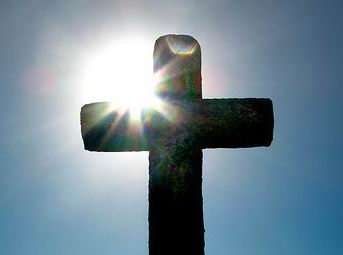Let each of you look not to your own interests, but to the interests of others. Let the same mind be in you that was in Christ Jesus . . . — Philippians 2:4-5
This Sunday palms will be raised and blessed. Hosannas will ring out. The story of Jesus’ triumphant entrance into Jerusalem will give way to the heavy reality of his journey to the cross. Holy Week is here again. I know; that’s not news to anyone. Most of the time, Palm Sunday worship is pretty predictable–either a short sermon or some sort of participatory or dramatic reading of the gospel.
What if, however, we looked at the lessons for this day from a slightly different approach? What if we view them through the lens of stewardship? A wise bishop once told me that every sermon is a stewardship sermon, so why should this day be any different? The connections are strong ones, emphasizing serving, giving, and sacrificing.
Consider the two verses above that are excerpted from the Epistle lesson. We are not to focus on our own desires and self-interest. Instead, we are called to think and act according to the example set by Jesus, whose life was the model of good stewardship. Everything he said and did reflected a concern for others and a bent toward justice. It’s quite an understatement to say that Jesus understood what it means to give up everything for others.
But Jesus isn’t the only one who understands and exhibits effective stewardship in the reading from Mark’s gospel. One of the first characters we encounter is the woman with the alabaster jar filled with costly ointment of nard. She comes to give a gift, the best that she has to offer. She breaks open the jar and pours the ointment on Jesus’ head. It is an act of extravagant love, one that angers many of those who witness it. The onlookers see only the bottom line: the ointment was worth more than 300 denarii, enough to feed many poor people. Sometimes good stewardship runs counter to what others expect because one of the requirements is a generous heart that doesn’t count the cost or pinch the pennies. This woman recognized what was really important, and it was something that did not make sense economically or socially. Nonetheless, she chose well, and her timing was right.
Even the lesson from Isaiah touches on stewardship, beginning with the image of the teacher who possesses the words to comfort and sustain the weak and weary, the suffering servant who obeys the will of God, and who in turn receives divine help and vindication. Doing the right thing results in the needed support to persevere and stay the course.
So as we enter Holy Week again, might we consider what it means to be of one mind in Christ Jesus? What does this mean for us both as individuals and communities of faith? Are we willing to make hard choices, to put self aside, and seek a common good for all God’s children? How can we live out this idea of “one mind” on a daily basis?
Because sermons will be short this week, perhaps simply lifting up such important questions with the challenge to ponder these things in the coming days is enough. The Holy Spirit is always at work among us, and this week is no exception. Perhaps even make sure in the prayers that people are encouraged to open their hands, hearts, minds, and resources in order that we may truly be of one mind in Christ. Plant the seed, and let the good news provide the medium for growth and nourishment. The results might surprise everyone!
Blessings on your proclamation and teaching!
Reminder: Worship leaders, clergy, and teachers please take care and be good stewards of your health and well-being in the coming days. Try to allow time for rest, reflection, and spiritual nourishment as we move into Easter. Even servant-leaders need to be properly charged in order to do the work to which they are called.




Leave a Reply